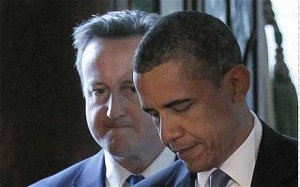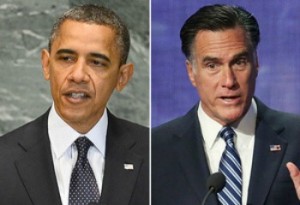Amidst reports that Great Britain has denied the US military use of important British bases for an assault against Iran, Pentagon Press Secretary George Little told reporters on Friday that whenever the DOD considers military action “we do it within the legal confines…of this country.” The US [...]]]>
 Amidst reports that Great Britain has denied the US military use of important British bases for an assault against Iran, Pentagon Press Secretary George Little told reporters on Friday that whenever the DOD considers military action “we do it within the legal confines…of this country.” The US has been contemplating military action against Iran’s nuclear program since at least 2006, but the legality of a unilateral attack has evidently not been a major consideration in Washington. It should be, as should the likely tactical complications of British (and potentially broader) non-cooperation.
Amidst reports that Great Britain has denied the US military use of important British bases for an assault against Iran, Pentagon Press Secretary George Little told reporters on Friday that whenever the DOD considers military action “we do it within the legal confines…of this country.” The US has been contemplating military action against Iran’s nuclear program since at least 2006, but the legality of a unilateral attack has evidently not been a major consideration in Washington. It should be, as should the likely tactical complications of British (and potentially broader) non-cooperation.
In dramatic contrast to apparent US assumptions of legality concerning preventative military action against Iran is the statement the Guardian obtained from a UK government source that “’The UK would be in breach of international law if it facilitated what amounted to a pre-emptive strike on Iran.’” In fact, reportedly based on legal advice from the UK’s attorney general, the UK has denied the US use of important British bases on Ascension Island, Cyprus, and Diego Garcia. The UK position should be of legal interest in Washington because Great Britain would not be the attacking nation, merely a government assisting the attacker. If UK legal instincts are so extraordinarily cautious about even passively aiding an attacker, one wonders how the US, in the role of the attacker, could muster such confidence about being on legal solid ground.
Most of all US resort to force over the past 20-odd years has been in response to direct attacks on the United States or US interests (post-9/11 anti-terrorist military action aimed against al-Qaeda and its affiliates, cruise missile attacks against al-Qaeda bases in Afghanistan in response to the East Africa embassy bombings and the attack against the USS Cole, etc.). Even with the iffy — and later debunked — Bush Administration case for war against Iraq, the US maintained that by sustaining a supposed arsenal of WMD, Iraq was in violation of international law tied to red lines laid down in UNSC resolutions linked to Chapter VII enforcement (use of force) concerning very specific requirements levied on Iraq in the immediate wake of the 1991 Gulf War.
So, even in an alleged worst case scenario in which, for sake of argument, Iran was believed to be in the midst of developing nuclear weapons that it planned to meld to an enhanced ballistic missile capability, that in and of itself would not constitute a direct attack on the US (out of range) or US interests (American bases or embassies in the Middle East/South Asia region). Indeed, the presumed threat posed by any such Iranian capabilities primarily would be against US regional allies such as Israel, most notably, and potentially others such as the GCC states, Turkey and so on. It has, however, not been historic US policy to launch preventative attacks against assumed — not active — threats against its allies.
On another, tactical level, the reported UK refusal of basing cooperation could be quite significant with respect to any US attack against Iran (even more so if other key US NATO allies were to follow suit). The potential loss of transit, staging, refueling and basing rights through the UK, Cyprus and particularly the basing of US heavy bombers at Diego Garcia, could complicate considerably the US ability to amass desired support for an attack on Iran (or sustain the preferred pace of military operations) in the robust manner outlined in the leaked 2006 US military operations plan reportedly briefed to President Bush.
Thus, the tactical problems associated with this apparent UK decision might give pause to US policymakers mulling over any massive knockout blow against Iran’s greatly dispersed nuclear infrastructure, as well as the many and varied Iranian military assets available to defend it.
- Wayne White is a Scholar with Washington’s Middle East Institute. He was formerly the Deputy Director of the State Department’s Bureau of Intelligence and Research’s Office of Analysis for the Near East and South Asia (INR/NESA) and senior regional analyst.
]]>US foreign policy specialist Stephen Walt lists the top ten questions you won’t hear during tonight’s last presidential nominee debate. Iran will be a central focus, if not the most talked about issue, but we’re unlikely to hear serious discussion along these lines according to Walt:
8. The United States has [...]]]>
 US foreign policy specialist Stephen Walt lists the top ten questions you won’t hear during tonight’s last presidential nominee debate. Iran will be a central focus, if not the most talked about issue, but we’re unlikely to hear serious discussion along these lines according to Walt:
US foreign policy specialist Stephen Walt lists the top ten questions you won’t hear during tonight’s last presidential nominee debate. Iran will be a central focus, if not the most talked about issue, but we’re unlikely to hear serious discussion along these lines according to Walt:
8. The United States has the world’s strongest conventional forces and no powerful enemies near its shores. It has allies all over the world, and military bases on every continent. Yet the United States also keeps thousands of nuclear weapons at the ready to deter hostile attack.
Iran is much weaker than we are, and it has many rivals near its borders. Many U.S. politicians have called for the overthrow of its government. Three close neighbors have nuclear weapons: Pakistan, India, and Israel. If having nuclear weapons makes sense for the United States, doesn’t it make sense for Iran too? And won’t threatening Iran with an attack just make them want a deterrent even more?
(Follow up: You both believe all options should be “on the table” with Iran, including the use of military force. Would you order an attack on Iran without U.N. Security Council authorization? How would this decision to launch an unprovoked attack be different from Japan’s sneak attack on Pearl Harbor in 1941?
Mr. President, you have said in all manner of ways that an Iranian nuclear weapon would be “unacceptable,” and that you will not take options off the table to prevent this outcome—a clear reference to the potential use of military force. But a bipartisan group of foreign policy heavyweights, in addition to numerous top former Israeli security officials, believe that attacking Iran’s nuclear facilities could engender grave consequences, with the maximum benefit being only a delay in Iran’s nuclear program. What’s more, many of these experts think attacking could actually spur the Iranian government to kick out nuclear inspects and actually build a weapon. Can an attack stop Iran?
Governor Romney, after going back and forth on where you would place the “red line,” which would trigger military action, on Iran’s nuclear program, you’ve settled on declaring that you would stop an Iranian weapons “capability.” On yourcampaign website, you say that if the Iranians get even a weapons “capability,” “the entire geostrategic landscape of the Middle East would shift in favor of the ayatollahs.” Other than appearing to be at some point short of nuclear weapons “production”—where the President Obama set his red line—”capability” is an ill-defined concept. How do you define a nuclear weapons “capability” and how would that change the Middle East?
And on the issue of Israel-Palestine, which thanks to Bibi Netanyahu’s relentless Iran campaign this year has virtually disappeared from mainstream press attention, Walt asks:
3. Both of you claim to support a “two-state” solution between Israel and the Palestinians. But since the last election, the number of Israeli settlers in the West Bank and East Jerusalem has increased by more than 25,000 and now exceeds half-million people. If continued settlement growth makes a two-state solution impossible, what should United States do? Would you encourage Israel to allow “one-person, one-vote” without regard to religion or ethnicity — as we do here in the United States — or would you support denying Palestinians under Israeli control in Gaza and the West Bank full political rights?
The National Security Network also provides a wealth of additional resources for tonight’s event.
]]>This weekend brought news of the latest set of inflammatory comments by Rabbi Ovadia Yosef, spiritual leader of Shas — the ultra-Orthodox party that is currently the fourth largest party in Israel’s Knesset. Yosef — whose previous statements regarding Arabs and Gentiles have drawn similar controversy — said [...]]]>
 This weekend brought news of the latest set of inflammatory comments by Rabbi Ovadia Yosef, spiritual leader of Shas — the ultra-Orthodox party that is currently the fourth largest party in Israel’s Knesset. Yosef — whose previous statements regarding Arabs and Gentiles have drawn similar controversy — said the following during his sermon on Saturday, according to the Jerusalem Post:
This weekend brought news of the latest set of inflammatory comments by Rabbi Ovadia Yosef, spiritual leader of Shas — the ultra-Orthodox party that is currently the fourth largest party in Israel’s Knesset. Yosef — whose previous statements regarding Arabs and Gentiles have drawn similar controversy — said the following during his sermon on Saturday, according to the Jerusalem Post:
“When we make the blessing on the dates that ‘our enemies and haters should be ended’ we should have in mind the Iranian regime, those evil people who threaten Israel,” the rabbi said.
“Do good, God, wipe them out, kill them,” he entreated, to which the assembled crowd answered “amen.”
“When eating the leek,” also traditionally eaten as part of the symbolic service for a good coming year, “and when we say that our enemies, foes and anyone who desires to do evil to us should be cut off, we should have in mind Hezbollah and Iran,” Yosef said.
“Destroy them God, obliterate them from the face of the earth,” he said… [emphasis added]
At +972, Ami Kaufman has more on the political implications of Yosef’s statement. Shas’s political leader, Interior Minister Eli Yishai, had been considered one of several members of Benjamin Netanyahu’s cabinet who are skeptical of an attack on Iran, but the Netanyahu government has been wooing Yosef to try to bring Shas (and thus Yishai) over into the war hawk camp. Last week, Yosef received a briefing on the Iran issue from Yaakov Amidror, head of Netanyahu’s National Security Council. The Shas leader’s recent comments may be a sign that he and his party have been persuaded to support an attack on Iran.
As for the comments themselves, I suspect that few will dispute the grotesqueness of Yosef’s call to “obliterate them [Iran and Hezbollah] from the face of the earth.” It’s worth noting that this is not the first time that Yosef has appeared to call for genocide: in 2001 he was quoted as saying of Arabs that ”it is forbidden to be merciful to them. You must send missiles to them and annihilate them. They are evil and damnable.”
As he did in 2001, Yosef’s supporters are arguing that his comments are being misinterpreted — that he is simply arguing for the obliteration of the Iranian regime, not Iran itself. Such a distinction provides scant consolation to Iranian civilians, large numbers of whom would most likely be killed in any attack on Iran.
More to the point, Iranian President Mahmoud Ahmadinejad similarly specified that he was talking about the “occupying regime” when he made his notorious comments suggesting that Israel must “vanish from the pages of time” — the phrase more frequently, albeit inaccurately, translated as “wiped off the map”. Of course, few Israelis felt greatly comforted by this qualification, for understandable reasons.
As I wrote several years ago during the Netanyahu “Amalek” controversy, it’s striking how differently the Western media treat these sorts of comments when they come from Israelis as opposed to Iranians. If a prominent Iranian cleric made similar statements to Yosef’s, they would be held up in the press as evidence of the regime’s genocidal fanaticism. When Yosef does it, suddenly pundits feel comfortable invoking context to explain away what on any reading is a call for blood.
]]>Lobe Log publishes Hawks on Iran every Friday. Our posts highlight militaristic commentary and confrontational policy recommendations about Iran from a variety of sources including news articles, think tanks and pundits.
John Bolton, Washington Times: The former UN Ambassador and outspoken proponent of
Lobe Log publishes Hawks on Iran every Friday. Our posts highlight militaristic commentary and confrontational policy recommendations about Iran from a variety of sources including news articles, think tanks and pundits.
John Bolton, Washington Times: The former UN Ambassador and outspoken proponent of military action against Iran rebukes President Obama for creating ”the most antagonistic relationship ever between Israel and the White House” by not preemptively striking Iran for Israel due to his “ideological inclination”:
There is, however, a serious problem. Israel’s assessment and its ultimate decision are complicated precisely because of the superiority of American military strength. If Jerusalem defers to Washington and does not strike early enough, Iran’s program could well pass the point where Israel has the necessary capabilities to break Iran’s control over the nuclear fuel cycle. Or, even worse, Iran could fabricate nuclear weapons before being detected by either U.S. or Israeli intelligence, risking that a strike by either country could bring a nuclear response from Iran.
There are three principal reasons not to credit Mr. Obama’s assurances. First, the president’s every ideological inclination is not to use U.S. military force pre-emptively. By contrast, two months before Pearl Harbor, Franklin Roosevelt defended American attacks against Nazi submarines in the North Atlantic, saying, “When you see a rattlesnake poised to strike, you do not wait until he has struck before you crush him.” Plainly, Mr. Obama is no Franklin Roosevelt.
Elliott Abrams, Weekly Standard: The former Deputy National Security Adviser to George W. Bush considers Israeli general Amos Yaldin’s call for the US to commit to striking Iran in 2013 if the Iranian “problem” is not solved reasonable but unrealistic, so he proposes a Congressional authorization for the use of force against Iran instead:
More persuasive than the Ross or Yadlin proposals would be an effort by the president to seek a formal authorization for the use of force from Congress. This is the way for him to show seriousness of purpose, and for Congress to support it—and send an unmistakable message to the ayatollahs. This path was suggested here in THE WEEKLY STANDARD early July, by Jamie Fly and Bill Kristol, and this is the moment to move forward with it. Like the joint resolutions for the Gulf Wars in 1991 and in2002 and the joint resolution passed after 9/11 regarding terrorism, a new resolution would not declare war; it would say “The President is authorized to use the Armed Forces of the United States as he determines to be necessary and appropriate” to achieve the goal. In this case, that goal would not be to counter “the continuing threat posed by Iraq” or “against those nations, organizations, or persons he determines planned, authorized, committed, or aided the terrorist attacks that occurred on September 11, 2001…in order to prevent any future acts of international terrorism against the United States.” It would be to prevent Iran—the world’s foremost state sponsor of terrorism, in violation of countless U.N. Security Council and IAEA board of governors resolutions, and under international sanctions—from obtaining nuclear weapons.
Jennifer Rubin, Washington Post: The “Tiger Mom of the neocon movement” alleges that President Obama’s “Iran dilemma” boils down to being blamed for Israeli losses if he does not strike Iran on Israel’s behalf or being unprepared in the event of being “forced” into another mideast war:
An Israeli strike would be a blatant signal of distrust in Obama by the Jewish state. If the action is less than successful, or if large casualties in Israel result, fingers will point at Obama for having failed to deploy superior U.S. force. And if he believes an Israeli strike will set off a Middle East war, the president, who is in the business of diminishing U.S. military presence, could well be forced into a conflagration.
Rubin also describes going to war with Iran as a form of carpe diem:
Obama, as he has done so frequently, can wait and hope the Israelis don’t act. That might “work,” insofar as Israeli leaders might want to stretch out the timeline just a little bit longer. But passivity has its price, both geopolitically and electorally. It will be interesting to see whether Obama or Romney seizes the moment. It would certainly be an act of political leadership if one does.
Charles Krauthammer, Washington Post: Like Rubin, the neoconservative Washington Post columnist Charles Krauthammer references Elliot Abrams’ call for congressional authorization for the potential use of force against Iran (without naming Abrams) in an article that criticizes the President’s approach to Iran. In this instance, Krauthammer argues that Anthony Cordesman’s suggested approach to Iran, which includes hardening the US’s stance and upping the threat of force, needs to be seriously considered before the military option is exercised. Also like Rubin, Krauthammer agitates for action under the pretext of the time-is-running out claim:
]]>Would Iran believe a Cordesman-like ultimatum? Given the record of the Obama administration, maybe not. Some (though not Cordesman) have therefore suggested the further step of requesting congressional authorization for the use of force if Iran does not negotiate denuclearization.
First, that’s the right way to do it. No serious military action should be taken without congressional approval (contra Libya). Second, Iran might actually respond to a threat backed by a strong bipartisan majority of the American people — thus avoiding both war and the other nightmare scenario, a nuclear Iran.
If we simply continue to drift through kabuki negotiations, however, one thing is certain. Either America, Europe, the Gulf Arabs and the Israelis will forever be condemned to live under the threat of nuclear blackmail (even nuclear war) from a regime the State Department identifies as the world’s greatest exporter of terror. Or an imperiled Israel, with its more limited capabilities, will strike Iran — with correspondingly greater probability of failure and of triggering a regional war.
All options are bad. Doing nothing is worse. “The status quo may not prevent some form of war,” concludes Cordesman, “and may even be making it more likely.”
While a nuclear-armed Iran would [...]]]>
 The Center for a New American Security (CNAS) has released a report called “Risk and Rivalry: Iran, Israel and the Bomb” and it’s a breath of fresh air compared to the output of Iran-focused think tanks that we’ve been covering here. Writes Jim Lobe for IPS News:
The Center for a New American Security (CNAS) has released a report called “Risk and Rivalry: Iran, Israel and the Bomb” and it’s a breath of fresh air compared to the output of Iran-focused think tanks that we’ve been covering here. Writes Jim Lobe for IPS News:
While a nuclear-armed Iran would pose significant new challenges to the United States and Israel, a military attack by either country to prevent Tehran from developing a weapon could well prove counter-productive, according to a major new report released here Wednesday by a think tank close to the administration of President Barack Obama.
And while preventive military action should remain on the table, it should only be considered if Iran “has made a clear move toward weaponization”, and there is a “reasonable expectation” that such a strike would set back Iran’s programme “significantly”, among other conditions, according to the 55-page report by the Center for a New American Security (CNAS).
The report, “Risk and Rivalry: Iran, Israel and the Bomb,” also argues that both the U.S. and Israel should avoid taking any steps that limit prospects for a negotiated agreement designed to dissuade Tehran from “weaponising” its nuclear programme.
In particular, they should not insist – as Israel and its backers in the U.S. Congress are doing – that Tehran end all uranium enrichment on its own territory as a condition of any negotiated settlement since such a stance “would most likely result in no deal at all”, according to the report, whose lead author, Colin Kahl, served as the Pentagon’s top Middle East policy-maker under Obama until January.
Read more.
]]>A growing number of current and former Israeli officials are voicing concern that attacking Iran may prove counterproductive in deterring Iran from pursuing a nuclear weapon. Last week, former Israeli internal security chief Yuval Diskin warned that attacking Iran may “encourage them to develop a bomb.”
A growing number of current and former Israeli officials are voicing concern that attacking Iran may prove counterproductive in deterring Iran from pursuing a nuclear weapon. Last week, former Israeli internal security chief Yuval Diskin warned that attacking Iran may “encourage them to develop a bomb.”
In an interview on Tuesday, former Israeli Defense Forces (IDF) intelligence head Shlomo Gazit joined the chorus warning against attacking Iran. Gazit agreed with Diskin that attacking Iran would not destroy Iran’s nuclear program, and could even accelerate it, the Jerusalem Post reports:
The public discourse over a strike largely neglected the likelihood that Iran would resume its program after being attacked, Gazit noted.
He said he agreed with Diskin that an Israeli attack would not destroy the program, and could even accelerate it, while enabling Iran to legitimize its efforts diplomatically.
Diskin raised eyebrows last week when he slammed Barak and Netanyahu as “our two messiahs” and charged:
[Israel's leadership] presents a false view to the public on the Iranian bomb, as though acting against Iran would prevent a nuclear bomb. But attacking Iran will encourage them to develop a bomb all the faster.
But Gazit urged those who agree with Diskin’s assessment to direct their criticisms to the electorate:
Even if they have messianic considerations, this is not important. They were legally elected through a ballot, and Diskin should direct his claims [against them] to the electorate.
In New York on Friday, former Mossad Chief Meir Dagan backed up Diskin’s criticisms, telling the Jerusalem Post that Diskin was speaking his “internal truth” and characterized him as a good friend and serious person.
Sources “close to the prime minister” told the Jerusalem Post that Diskin’s attacks were “irresponsible” and “motivated by personal frustration that he wasn’t chosen to lead the Mossad.” But another former head of Israel’s internal security service, and current member of the Knesset, Yoel Hasson, was reported by the Jerusalem Post as warning that Netanyahu should be concerned about the criticms he is facing from former heads of the security establishment, such as Diskin, Dagan and Gabi Ashkenazi.
While a potential Iranian nuclear weapon is widely considered a threat to both the security of the U.S. and its allies in the region, as well as the nuclear non-proliferation regime, those estimates give the West time to pursue a dual-track approach of pressure and diplomacy to resolve the crisis. Like their Israeli counterparts, American officials including President Obama vow to keep “all options on the table” to deal with the Iranian nuclear program, but questions about the efficacy and consequences of a strike have led U.S. officials to declare that diplomacy is the “best and most permanent way” to resolve the West’s crisis with Iran.
]]>